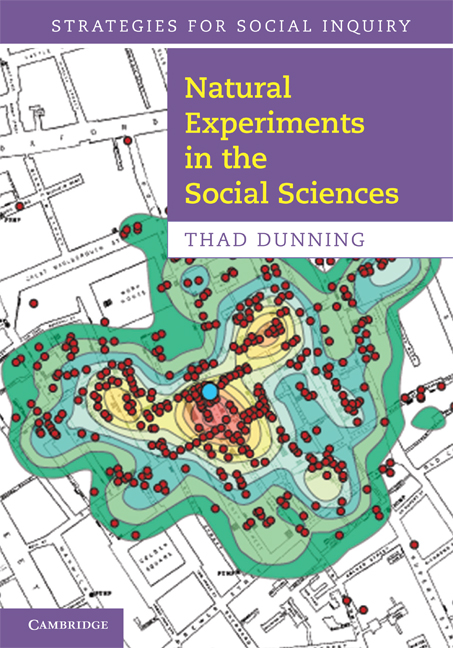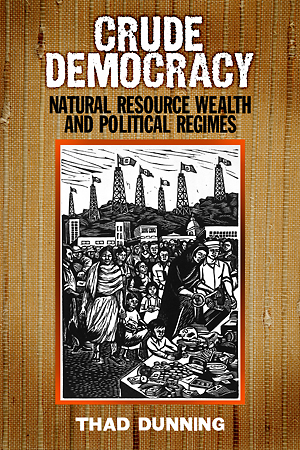2019. Information, Accountability, and Cumulative Learning: Lessons from Metaketa I. 2019. Cambridge University Press, Cambridge Studies in Comparative Politics (with Guy Grossman, Macartan Humphreys, Susan Hyde, Craig McIntosh, and Gareth Nellis, Eds.).
Winner of the Best Book Award, Experimental Research Section of the American Political Science Association (2020)
Winner of the Luebbert Book Award for best book in comparative politics, American Political Science Association (2014); Winner of the Best Book award from APSA’s Comparative Democratization section; Honorable Mention, 2011 Best Paper Award, Comparative Democratization Section of APSA (with Susan Stokes, for a paper based on Chapter 8).

2012. Natural Experiments in the Social Sciences: A Design-Based Approach. Cambridge University Press.
Book-jacket description: This unique book is the first comprehensive guide to the discovery, analysis, and evaluation of natural experiments—an increasingly popular methodology in the social sciences. Thad Dunning provides an introduction to key issues in causal inference, including model specification, and emphasizes the importance of strong research design over complex statistical analysis. Surveying many examples of standard natural experiments, regression-discontinuity designs, and instrumental-variables designs, Dunning highlights both the strengths and potential weaknesses of these methods, aiding researchers in better harnessing the promise of natural experiments while avoiding the pitfalls. Dunning also demonstrates the contribution of qualitative methods to natural experiments and proposes new ways to integrate qualitative and quantitative techniques. Chapters complete with exercises, and appendices covering specialized topics such as cluster-randomized natural experiments, make this an ideal teaching tool as well as a valuable book for professional researchers.

2008. Crude Democracy: Natural Resource Wealth and Political Regimes. Cambridge Studies in Comparative Politics, Cambridge University Press.
Book-jacket description: This book challenges the conventional wisdom that natural resource wealth promotes autocracy. Oil and other forms of mineral wealth can promote both authoritarianism and democracy, the book argues, but they do so through different mechanisms; an understanding of these different mechanisms can help elucidate when either the authoritarian or democratic effects of resource wealth will be relatively strong. Exploiting game-theoretic tools and statistical modeling as well as detailed country case studies and drawing on fieldwork in Latin America and Africa, this book builds and tests a theory that explains political variation across resource-rich states. It will be read by scholars studying the political effects of natural resource wealth in many regions, as well as by those interested in the emergence and persistence of democratic regimes.
Crude Democracy won the best book award from the Comparative Democratization Section of the American Political Science Association and the Gaddis Smith International Book Prize, for the best first book on an international subject by a member of the Yale faculty. The dissertation on which the book is based also won the Mancur Olson Prize from the Political Economy Section of the American Political Science Association, for the best dissertation in the field of political economy completed in the previous two years. Available from Cambridge University Press, Amazon, and Barnes & Noble.